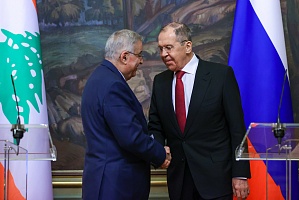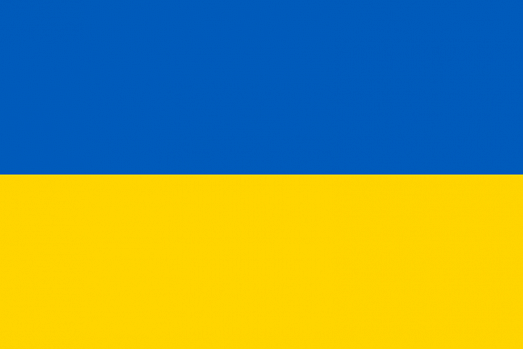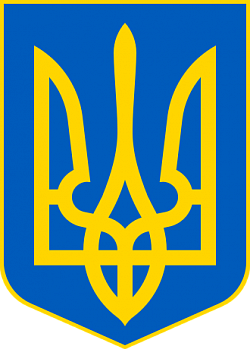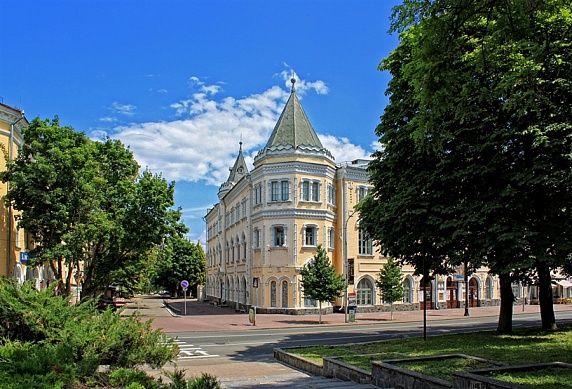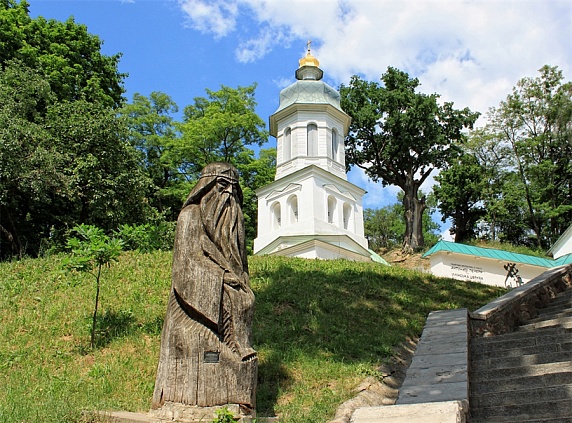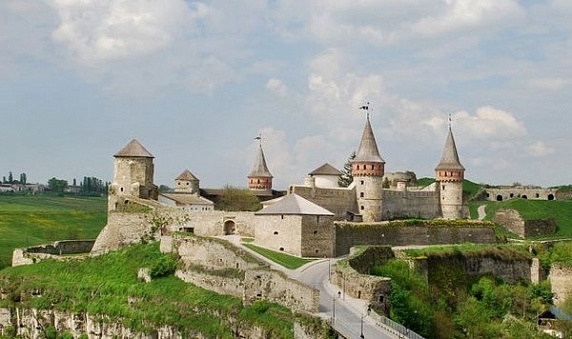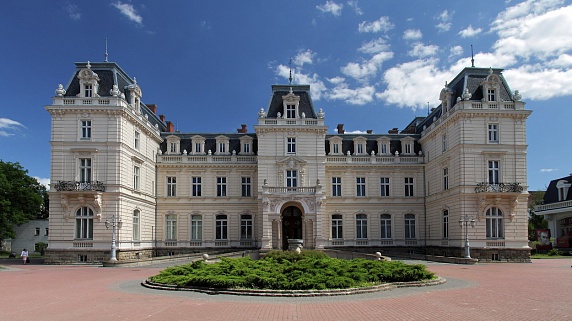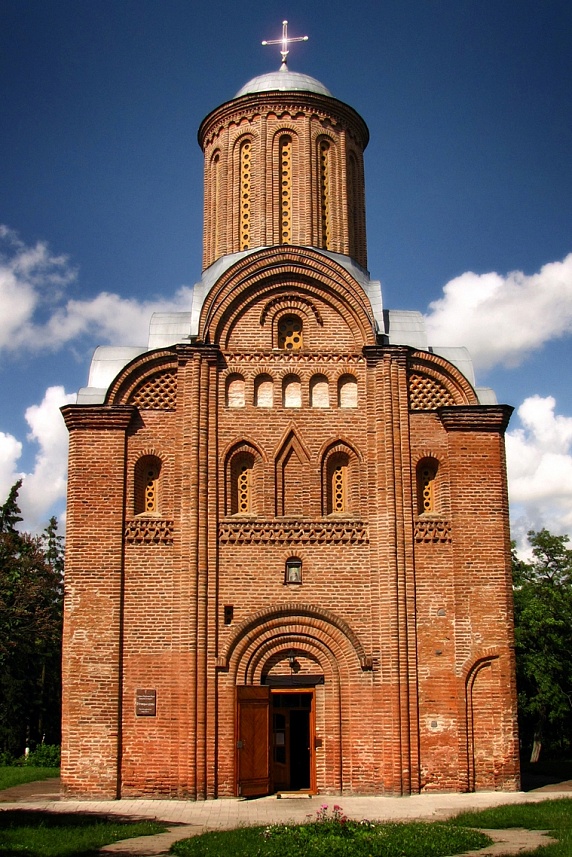 Ucrânia
Ucrânia
Foreign Minister Sergey Lavrov’s remarks and answers to media questions at a joint news conference following talks with Foreign Minister of Lebanon Abdallah Bou Habib, Moscow, November 22, 2021
Ladies and gentlemen,
I would like to congratulate Mr Minister, members of his delegation, and all Lebanese people here today on your national holiday, Independence Day which is celebrated today. I wish peace, wellbeing and prosperity to the friendly and long-suffering people of Lebanon.
It means a lot to us that on this day my colleague, Mr Habib is here, working in Moscow. I think this emphasises the importance that we attach to the development of bilateral relations.
We discussed in detail a broad range of issues. We emphasised our growing interest in further expanding our political dialogue, deepening cooperation in the trade, economic and investment areas and promoting long-standing humanitarian, education and cultural ties, including cooperation between the religious communities of Russia and Lebanon. By tradition, the Russian Orthodox Church maintains close cooperation with its Lebanese colleagues. We are creating and actively using the legal framework to implement a number of mutually beneficial projects. We reviewed the prospects for the potential participation of Russian companies in restoring the infrastructure destroyed by the explosions at the Port of Beirut on August 4, 2020. At the request of the Lebanese government, we sent satellite photos taken by Roscosmos. We hope they will help in the investigation of this incident. This issue has created much attention in Lebanon. We hope that it can be resolved and that the cause of the incident will be established.
We discussed our cooperative efforts, including our companies’ (Novatek and Rosneft) activities, to develop Lebanon’s energy sector. Among other things, we focused on drilling in Lebanon’s continental shelf, which Novatek engages in, and expanding a petroleum product storage terminal at a Rosneft-owned port in Lebanon.
We thanked our colleagues for the candid and useful information on the internal political situation in Lebanon. Given Lebanon’s multi-religious society, we have always thought that maintaining stability in that country was a major condition for ensuring regional security in the Middle East.
We reiterated our full commitment to Lebanon’s sovereignty, independence and territorial integrity. We believe that the Lebanese should resolve all matters related to the functioning of their state, the life of their country, and any items on the national agenda on their own via a constitution-based dialogue while showing respect for each other and a willingness to compromises. We sensed that the minister was committed to this approach. He represents the Najib Mikati-led government which was formed recently. The government is based on a coalition. Its creation in September ended a long period of domestic crisis. We have hope and reason to believe that the prime minister and his team will stabilise the situation in the country, pull it out of the drawn-out socioeconomic crisis, and ensure the proper functioning of public institutions.
We discussed the international and regional agendas. Our positions are close or overlap. The situation in the Middle East remains difficult, occasionally to the point of being explosive. We strongly believe that Lebanon should not be regarded by anyone as an object of external interference. We see such attempts being made from a variety of directions. We are confident that it would be a disaster for Lebanon and the region in general. Lebanon should not be used as a “field for settling scores” between third states; we see developments like this as well. Of course, we are against the country being held hostage to the crisis in neighbouring Syria. We noted a number of positive developments, including an agreement about exporting to Lebanon electricity from Jordan and gas from Egypt through Syria. This is an important step, which shows the path to follow if we want to create a stable economic foundation for addressing political problems in the region.
We discussed ways to strengthen Russian-Lebanese interaction with regard to the Syrian citizens who found temporary refuge in Lebanon returning home safely. We are on the same page in our belief that while focusing on this problem and allocating considerable funds to resolving the problems of Syrian refugees, the international community should concentrate its efforts and contributions on creating proper conditions in Syria so refugees can return home from camps in Lebanon, Jordan, Turkey and Egypt. Unfortunately, our Western partners tend to use the larger portion of their contributions to this end for keeping refugees in these camps outside Syria. This does not help to implement Resolution 2254 which calls for making arrangements in order to have Syrian refugees return home.
The minister has kindly invited me to visit Lebanon. I accepted his invitation with pleasure.
Thank you.
Question: How can the images you have given your Lebanese colleague today help in the investigation of the explosion in Beirut? The accusations widely differ, but the explosion seems to be at the root of the current political crisis.
Sergey Lavrov: Regarding the satellite images, I don’t know how they can help in the investigation. I am not an expert. We have fulfilled the instructions which President Vladimir Putin issued after he received a request from President Michel Aoun. Roscosmos has provided the images of the situation in the port in the spring of 2020, that is, before and after the explosions. Roscosmos experts said that the character of the damage can help determine the cause of the explosions. We hope that Lebanese experts, using the assistance of their foreign colleagues, will get to the bottom of this matter, which is really becoming a major political irritant in Lebanon. We would like it to be settled as soon as possible.
Question: Did Russia participate or help in the demarcation of the maritime border between Lebanon and Israel? Since Russia is involved in the development of offshore deposits in Lebanon, can you say if there are any current agreements regarding this? When could work on these projects begin?
Is there a concrete mechanism or a mutual agreement that can help break the deadlock in this matter? What are the prospects for the large-scale return of Syrian refugees home?
Sergey Lavrov: We briefly touched upon the maritime border demarcation between Lebanon and Israel. Mr Minister has said that the talks are ongoing. Maybe he will provide additional information on this issue.
As for oil and gas production, I have already mentioned that Russian hydrocarbon exploration and production companies, in particular, Novatek, are planning to sink another offshore well in early 2022. Rosneft, which is implementing a major project, has a contract on the operational management of [an oil products terminal] in the port of Tripoli. There are plans regarding the modernisation and enlargement of that terminal.
Today we had a discussion with our colleagues on the steps for creating conditions necessary to launch this project as soon as possible. Lebanon’s Energy Ministry will send us its proposals, to which we will respond accordingly.
I have already said everything I could about the refugees. Regrettably, when the first conference on refugees was held in Damascus exactly a year ago, the United States and the EU took desperate and disreputable efforts to derail it. They undertook harsh actions in the capitals of the invited countries demanding that they reject the invitation and refuse to send their delegations to Damascus to take part in the conference on the return of refugees. They used blackmail and, regrettably, they succeeded; even the UN Secretary-General eventually refused to send a delegation to the conference. He asked his representative in Damascus to attend it as an observer. This is highly regrettable, because such actions amount to a gross violation of international humanitarian law, according to which all issues related to refugees and their return can only be decided in close coordination with the country of origin from which the refugees were displaced. These actions were unacceptable, to put it mildly, and even arrogant, considering that several months later the EU convened its own Syrian refugees conference in Brussels. I regret to say that the event was co-chaired by the UN Secretary-General, which does no credit to the office he holds. The conference did nothing more than collect funds for the refugee camps in Lebanon, Jordan, Turkey and Egypt. Moreover, Syrian Government representatives were not invited to attend the conference, which is another gross violation of international humanitarian law. We are now considering measures to support Syria, Lebanon and other countries that have given shelter to Syrian refugees, and we may hold a second refugee conference in one of the countries that has the largest number of Syrian refugees.
If our Lebanese friends show interest in this, we will support them. We believe that the burden Lebanon has shouldered (it has given shelter to over half a million Palestinian refugees and even more Syrian refugees) is extremely heavy for a small country and that something should be done about this. I hope that the Western donors will become aware of their responsibility as well.
We also held an in-depth discussion on the Palestinian-Israeli settlement. We are seriously concerned that the process has stalled and that direct talks between the leaders of Palestine and Israel have not resumed. The [Middle East] Quartet of international mediators continues its work, but all it is doing is make statements on the current situation; no new ideas have been advanced. In this context, we remain interested in supporting President Mahmoud Abbas’s initiative to hold an international conference on Palestine.
We once proposed starting preparations with a meeting of the Quartet’s foreign ministers, the Arab leaders and representatives of the conflicting parties. We will see what happens next. The situation should become clearer following tomorrow’s visit by the President of Palestine to Russia. We are looking forward for him to tell us about progress in restoring unity between the Palestinian factions Fatah and Hamas.
Question: Did the joint Russian-Lebanese diplomatic and political efforts help overcome internal and external hindrances that prevent the Russian Federation from providing substantial support? There were many initiatives regarding Russia's participation in rebuilding Lebanese infrastructure, including the development of oil and gas fields by Novatek and Rosneft. To what extent have your joint efforts helped overcome internal and external Lebanese differences?
Sergey Lavrov: I have already mentioned our plans involving Novatek and Rosneft. We are not in a position to say how much the contribution of these two and several other Russian companies willing to participate in improving Lebanon’s infrastructure will help move that country forward. It’s up to Lebanon, its people and leadership to judge that.
Question (addressed to Abdullah Bou Khabib): You picked the Russian Federation for your first foreign visit. You are an excellent diplomat with enormous experience in different countries. Does that reflect your aspiration and focus in Lebanon’s eastern foreign policy (with the Russian Federation as the first stop)?
Sergey Lavrov (speaking after Abdullah Bou Khabib): Russia respects Lebanon’s stance. Unlike Western countries, we never tell our partners who to be friends with and who to avoid. Our US and certain European colleagues are running around the globe demanding an end to trade, economic, investment and defence industry cooperation with Russia and China. They are not even trying to hide it. Russia never puts such conditions on anyone. We respect sovereignty and our partners’ sovereign right to choose colleagues with whom they want to cooperate in the international arena.
Question: Reportedly, Ukraine has for the first time used US Javelin missile systems in Donbass. Does Moscow have any information about this? Are there concerns that this will destabilise the situation in Donbass completely? Does Russia plan to contact the United States regarding Ukraine any time soon?
Sergey Lavrov: I have not heard this news. But in recent weeks and months we have been hearing a very heated and dangerous stream of consciousness coming out of the Ukrainian leadership, especially its military. Whenever bellicose rhetoric of that kind is being stoked, it betrays plans to carry out a provocation and bring the conflict into a hot phase. In their remarks, the Commander-in-Chief of the Armed Forces of Ukraine and the Commander of the Joint Forces Operation in Donbass are constantly outlining their aggressive plans. There is an old-fashioned word “warmongers”. But I can’t think of any better description: it’s the aggressive plans of the Ukrainian warmongers. They threaten to use Javelins, and they have already used Bayraktar. Not that they had done so by accident, but they reported it with pride, despite being banned by the Minsk agreements. Truth be told, they provided inconsistent testimony. First, they said it did take place; then they said it didn’t happen, and finally they confessed. They did more than confess, they said they would continue to use attack drones in Donbass, thereby once again trampling upon their obligations under the Minsk agreements.
Their statement to the effect that the Ukrainian military are not restricted in using weapons in Donbass is another example of their bellicose rhetoric. They can fire at will. This goes to show Ukraine's outright refusal to comply with the agreements it signed in July 2020 on how to respond to fire and how to coordinate return fire. Our colleagues from Germany and France wanted to devote the Normandy format meeting to this particular issue, among others. Donetsk and Lugansk are complying with their respective obligations. Ukraine has publicly withdrawn from them. Instead of rapping Ukraine’s knuckles and make its “clients” in Kiev do as agreed upon with Britain and France’s assistance and support, they are inviting us to hold another Normandy format meeting. This path leads nowhere. I’m very worried about how resistant Berlin and Paris are to supporting the Minsk agreements and how they bend over backwards to cover up and justify the Kiev regime’s unacceptable actions.
During President Vladimir Putin and President Joe Biden’s summit in Geneva, the US President reaffirmed his adherence to the Minsk agreements. He acknowledged that it is important to fulfill, among other things, the part of the agreements that talks about Donbass’ special status. This matter was discussed during US Undersecretary of State Victoria Nuland’s visit to Russia. She reaffirmed this position stated by President Biden during the meetings at the Foreign Ministry and the Presidential Executive Office. We believe that the United States has a better understanding of the current situation. No one doubts they have a stronger influence on Kiev than anyone else. Let's see whether the United States will be able to translate its words into actions and help fulfill the Minsk agreements.
We do not think it is necessary to create new formats. There is the Normandy format and there is the most important mechanism that implements the agreements that are part of the Minsk Package of Measures and other decisions. I’m talking about the Contact Group for peaceful settlement in Eastern Ukraine, where Donetsk, Lugansk and Kiev work directly among themselves with the help of the OSCE and the Russian Federation. It is important to fulfill the Minsk agreements in this particular format. One way or another, Ukraine will be discussed during the next presidential summit, the timeline and other details of which are being discussed. Russia doesn’t see the need to create new formats. Under the previous US administration, we had contacts with US representatives which did not undermine the authority of the Normandy Four or encroach upon the Contact Group’s prerogatives. Contacts like that are quite productive for exchanging views and discussing ways to put the United States’ enormous influence on the Kiev regime to good use.
